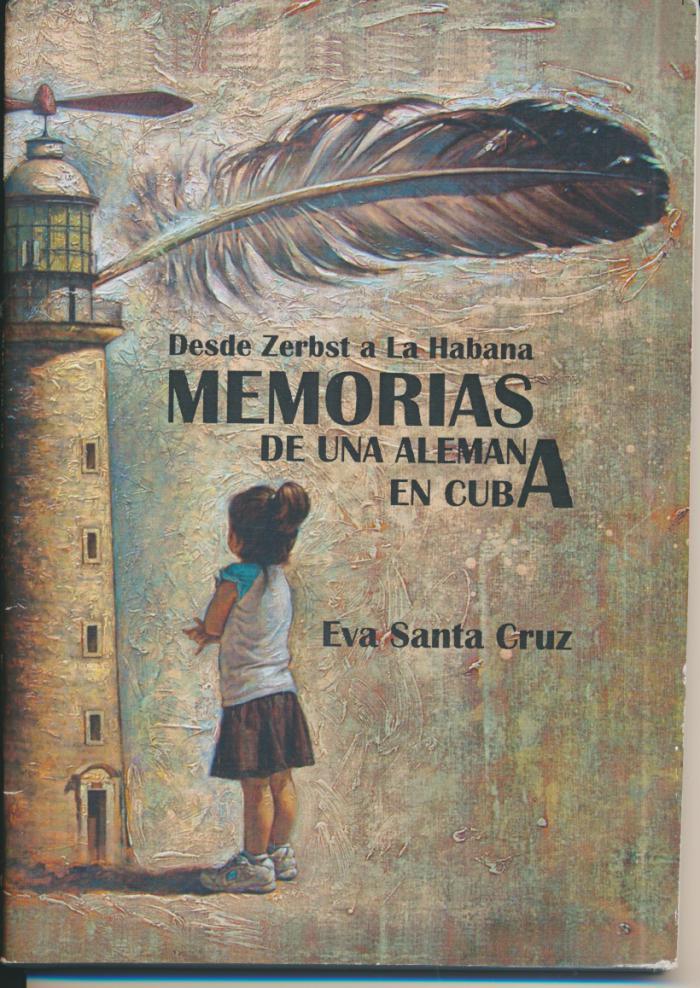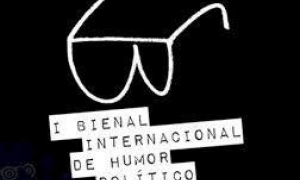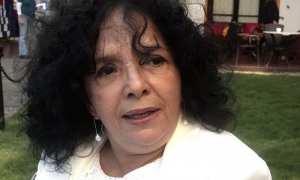
"I remember once, on our way back from the bunker, we stood on the balcony of our house and saw, in the distance, the sky as red as blood, and I asked my mother: Are they burning the angels in the sky?"
The writer is Eva Ludwig, born in Germany in 1940, a woman with blue eyes and boundless intelligence. I have known her for years (she is a translator at Granma International), but we have not spoken much, until a week ago, when she handed me her book, published by Ediciones Extramuros: Desde Zerbst a La Habana: Memorias de una alemana en Cuba (From Zerbst to Havana: Memories of a German woman in Cuba), signed as Eva Santa Cruz.
That day we talked at length and she told me a bit of what I would later see more clearly in her memoir, read in one sitting: her sincerity and optimism, evident even when addressing her most painful memories. Eva was four years old when bombings of Nazi Germany were intensified. "Given the dangerous situation, we hardly left the cellar; we cooked in the laundry room... I, of course, didn't notice anything. The most important thing was the porridge and my fantasy world.”
Her father, a training officer in the German army, died in 1944 and the girl remembers perfectly the day his belongings were brought to the house.
"...I immediately asked my mother to let me eat on the plate he used on the front."
A sensitive and playful girl, Eva displays her prodigious memory describing her simple toys, escapes to the forest, profiles of all members of the family, the trials and tribulations suffered by her widowed mother attempting to feed three children, without overlooking that, amidst the horrors of Hitler’s war, there were people who saw them as "Nazi pigs," as well.
First came the U.S. troops, who left quickly. "Do you have chocolate, we begged. Horrors! ... The Russians filled our hands with sugar that we did not reject at all, because the food rations were meager…" The Soviets also offered them stew that they cooked for the troops, "But... you couldn't take a step (walking barefoot on the grass) without stepping on a piece of glass or simply cutting yourself, since they threw all kinds of empty bottles out the windows..."
The short 111-page book tells of Eva’s childhood during WWII, and how her family began anew in the first years of the German Democratic Republic, where in 1963 she met a young Cuban studying there.
Two years later, she was awestruck discovering Havana Bay, from the boat on which she traveled to Cuba, and, a bit later, when she met her husband's family, who treated her like a daughter and offered the newlyweds the best room in their small house. She didn't speak Spanish, but began to study and gradually joined life in the country, learning our customs and assuming life as a Cuban.
Fifty-five years later, she recalls two children, grandchildren, the joy of receiving her mother and brother in Cuba (her sister also lives here, married to a Cuban), encounters, misunderstandings, divorce in the 1980s, a new partner, job changes, the same old bicycle to go to work every day, visits to the land where she was born, always returning to the country that gave her shelter, a second language, life, pure life, and - I would like to think - some of the joy of existing that won't let her go.






